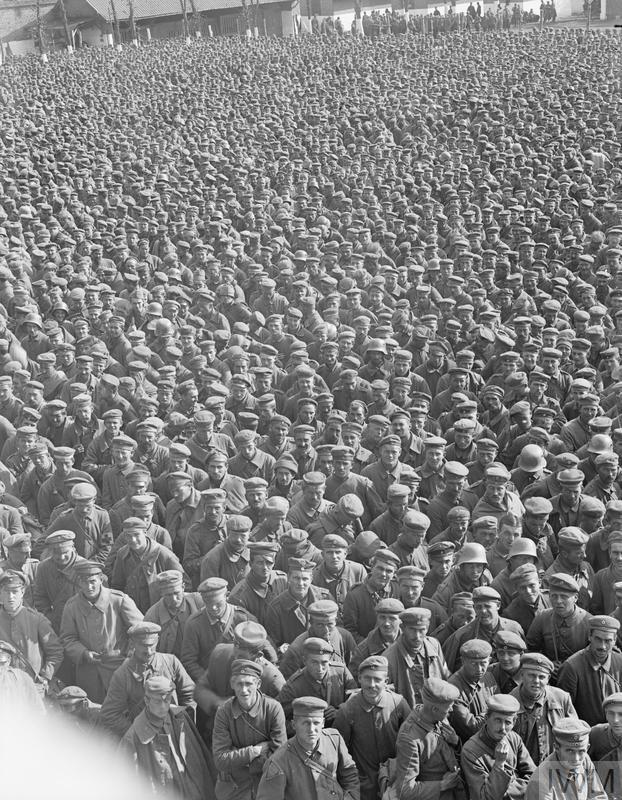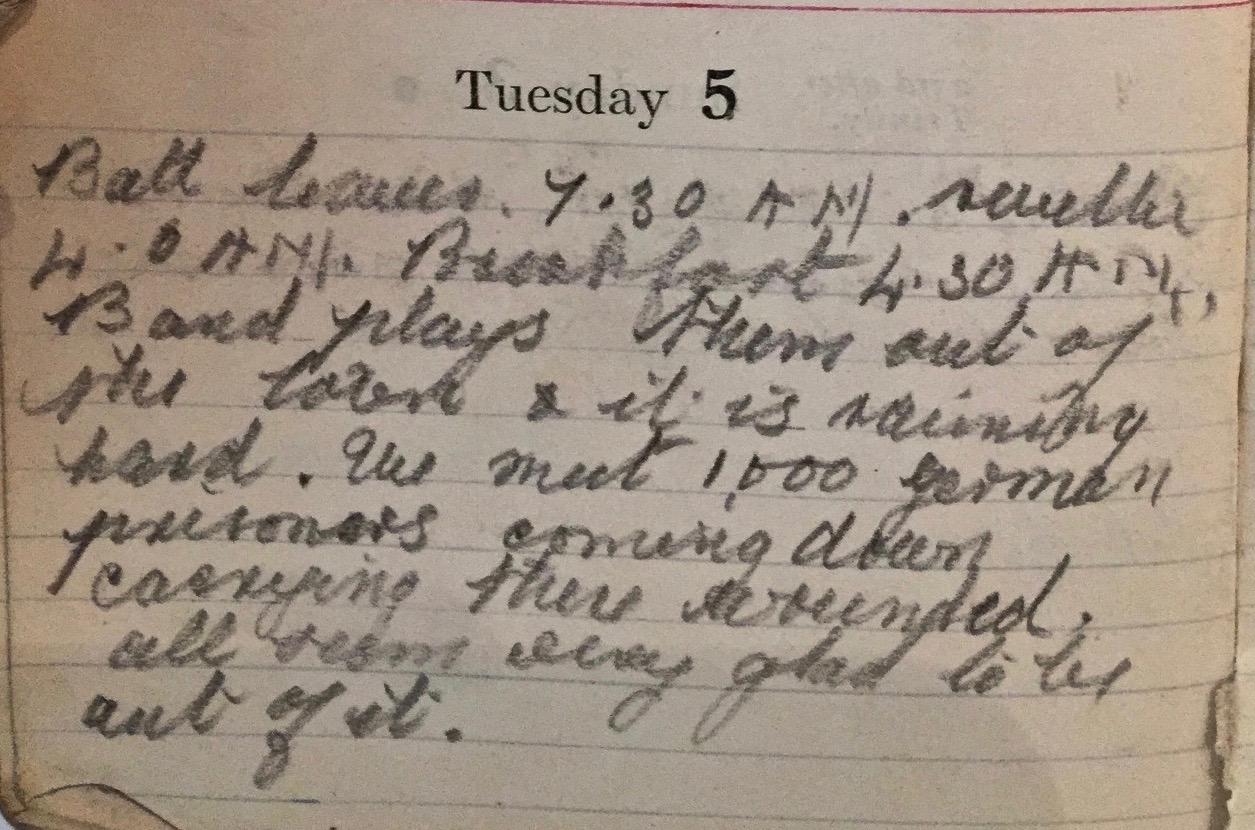Tuesday November 5th, 1918
Battalion leaves 7:30am. Reveille 4am. Breakfast 4:30am. Band plays them out of the town and it is raining hard. We meet 1,000 German prisoners coming down carrying their wounded. All seem very glad to be out of it.
Left Behind
Frank and the Band play the Battalion out of town as it marches to Landrecies. It doesn’t look as though the Band is going with the rest of the 9th / Manchester, but instead will stay in Le Cateau.
German Prisoners
Frank witnesses a thousand German prisoners coming down from the front line. In total, since July 18th, 1918 until the war’s end, the Allies will take almost 400,000 prisoners on the Western Front. Of these, almost half will be captured by British and Commonwealth troops, a third by the French, and the rest by American and Belgian armies.¹

Frank reckons that ‘All seem very glad to be out of it.’ It is no wonder. While the Germans continue to fight strongly, all must now know that the war is lost. After all, it is public knowledge that Germany, of all the Central Powers, is the only one still fighting. Furthermore, quite public armistice approaches by the Germans towards the Allies have been underway for almost a month.
‘By autumn 1918 most German soldiers had reconciled themselves to defeat. The precise modalities of the cease-fire for which the imperial government asked in October did not interest them; returning home intact was now all important.’²
Local Reaction
95% of Belgium and almost 4% of France has been occupied by the Germans since 1914. The occupiers have stripped these territories of both men and resources in order to sustain the German war effort and combat the British blockade. Even wool from mattresses and bells from church towers have been confiscated. International food aid has been essential to save the local populations in these occupied territories from starvation (and save the Germans’ from providing such support). Hundreds of thousand of civilians, as forced labour, have been sent to work in German factories or in ‘civil works battalions’ behind the lines.³ Many more have become refugees in countries including The Netherlands and Britain, as well as unoccupied parts of France.
The reaction of newly-liberated locals to the sight of German soldiers as prisoners therefore is bound to be vigorous:
‘They passed, on their way through our lines, groups of prisoners and prisoners in cages and shouted hilariously at the spectacle.’º
It seems as though there is relief on all sides.
9th Battalion War Diary – 5h November 1918 – Le Cateau
Battalion marched off at 07:15 hours towards Pomeroy. ‘B’ teams and reinforcements remaining at Le Cateau. Message map of Le Cateau is attached (Appendix No 4). Battalion reached Landrecies.
References & Further Reading
¹ ‘General Jack’s Diary, War on the Western Front 1914-1918’ edited by John Terraine, Cassell, 2003, (1964). Page 298
² ‘Between Acceptance and Refusal – Soldiers’ Attitudes Towards War (Germany)‘ by Steffen Bruendel on International Encylopedia of WWI 1914-18
³ ‘Occupation during the War (Belgium and France)‘ by Larissa Wegner, International Encyclopedia of WWI 1914-18
º The Guardian, October 10th, 1918, page 5
* Q 9358, copyright Imperial War Museums


